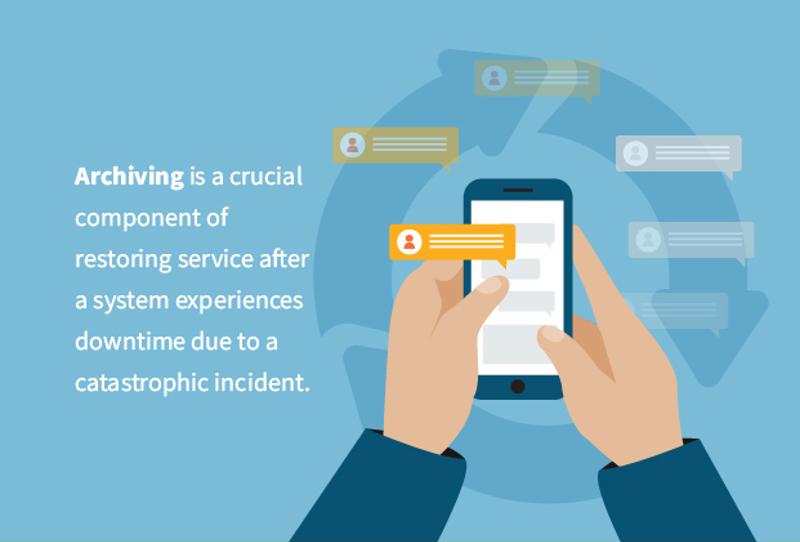As the COVID-19 pandemic and the global response to this disease unfolds, technology has a central role to play in the process. Innovative, next-generation solutions are essential, as are standby communications channels that have been ubiquitous, reliable and well maintained for years.
As Julia Ask, a vice president and principal analyst at Forrester, recently pointed out while discussing how text messaging provides benefits for emergency communications, "[SMS] always works, and it works for everyone on every phone all the time." She noted that she was intentionally being a bit hyperbolic, but the point is taken.
It's important to remember that SMS communications only works "all the time" if the right infrastructure is in place to ensure that messages are still delivered in the face of crises that can result in overloading and hardware failure. We're now in the middle of just such a time, and dependable infrastructure is absolutely essential.
This is why organizations that use an SMS API need high accessibility now more than ever.

What Is an SMS API?
An SMS API, or application programming interface, is a tool for sending text messages from a computer. An API bridges the divide between computers and mobile telecommunications platforms, routing communication through a gateway so they can be delivered as a standard text message, indistinguishable from any other.
During times of high stress, users need to be able to rely on two core behind-the-scenes features of this gateway.
In-place SMS Archiving
Archiving and storage of sent and received messages is crucial for several reasons.
First, it's frequently a legal requirement for governments, as well as some other organizations and entities, due to transparency regulations. Faulty or unreliable archiving may put some groups in legal jeopardy.
Second, many businesses rely on archiving for reference, verification and general business continuity. If a detail isn't logged elsewhere, consulting messaging archives can help keep a project on track.
Lastly, in-place archiving is a crucial component of restoring service after a system experiences downtime due to a catastrophic incident. Being able to recover unsent messages means they can be delivered when, and where, service is restored.
Geographic Redundancy's Importance For SMS Infrastructure
Restoring service after an outage is one of the chief benefits of geographically redundant infrastructure, or replicating crucial hardware in areas that are far apart from each other.
As groups expand telehealth services, one component of their spending will be devoted to establishing strategic redundancy.
If physical infrastructure is located only in one area, it's susceptible to overloading when that area becomes a hot spot, or it could become inaccessible for maintenance. In this instance, replicating the mission-critical hardware in a different location can be necessary for system recovery.
For a full-scale solution, find out how directly integrating your communication platforms with our API suite can give you access to Swift SMS Gateway's best-in-class messaging infrastructure, including geographic redundancy and in-place archiving. We're here to help you explore your SMS needs as they evolve during these uncertain times.



